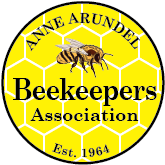Dear Members,
Please join us for the Anne Arundel Beekeepers Association August 18, 2020 meeting, via
Zoom.
The meeting will begin at 7:00 PM with some introductory comments. Our speaker will be
Allen Hayes, Master Beekeeper. He will be discussing preparing for the EAS Master
Beekeeping exam. This is an opportunity to learn what resources are available to help you
become a better beekeeper.
Following a Q & A for Allen we will have an opportunity for the newer beekeepers to get advice
and ask questions about what they are seeing in their hives.
Once again, the DC Beekeepers Alliance is loaning us their zoom account. The waiting room
will open at 6:30 PM – Eastern Time, to work out any kinks.
You are invited to a scheduled Zoom meeting.
Thank you, your moderator, Carl F. Guerci Jr.
Read More

